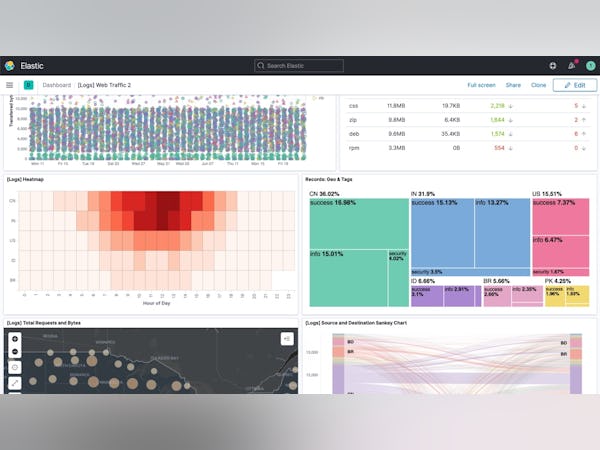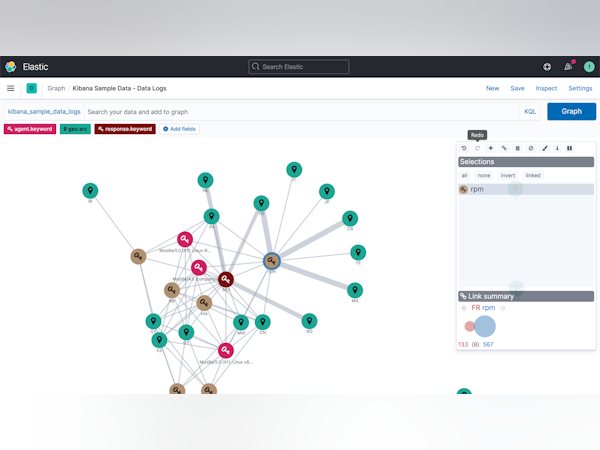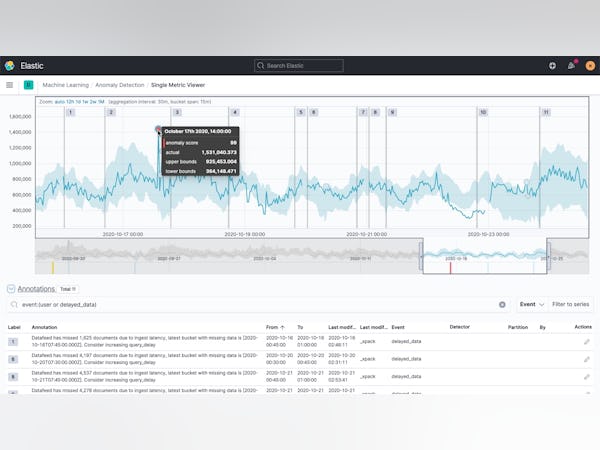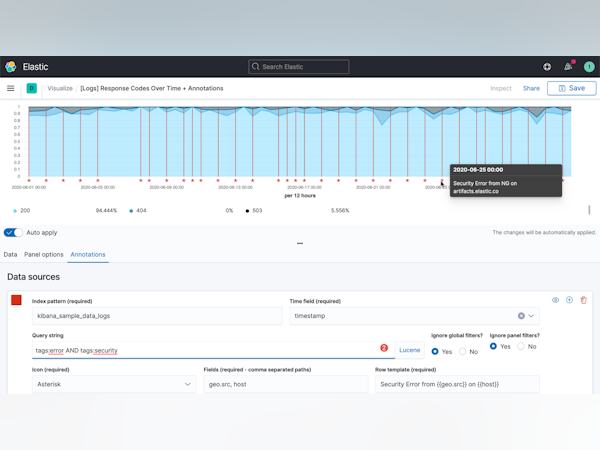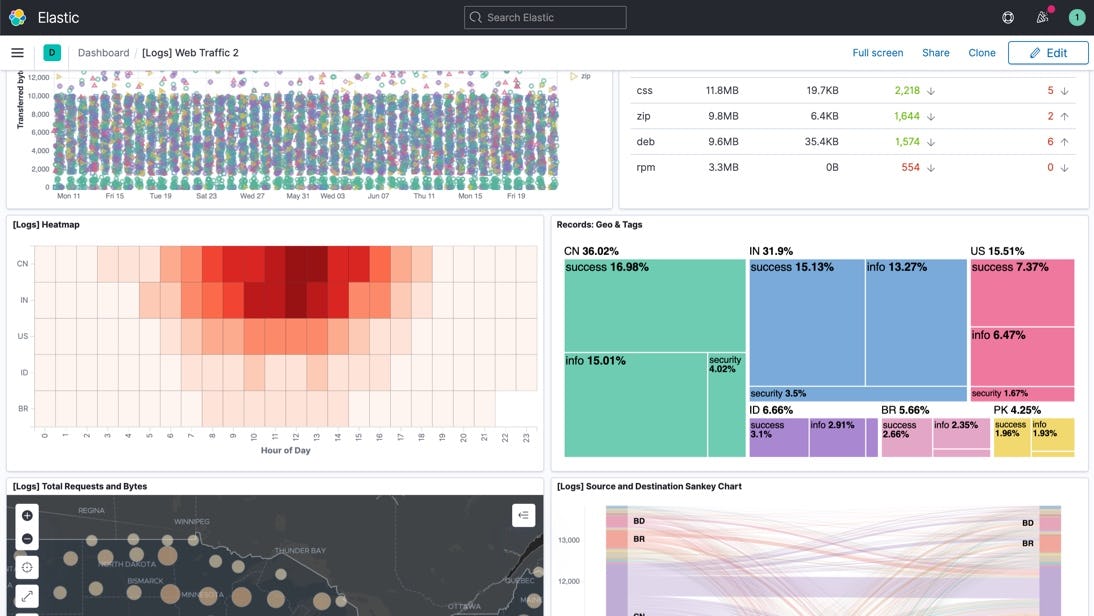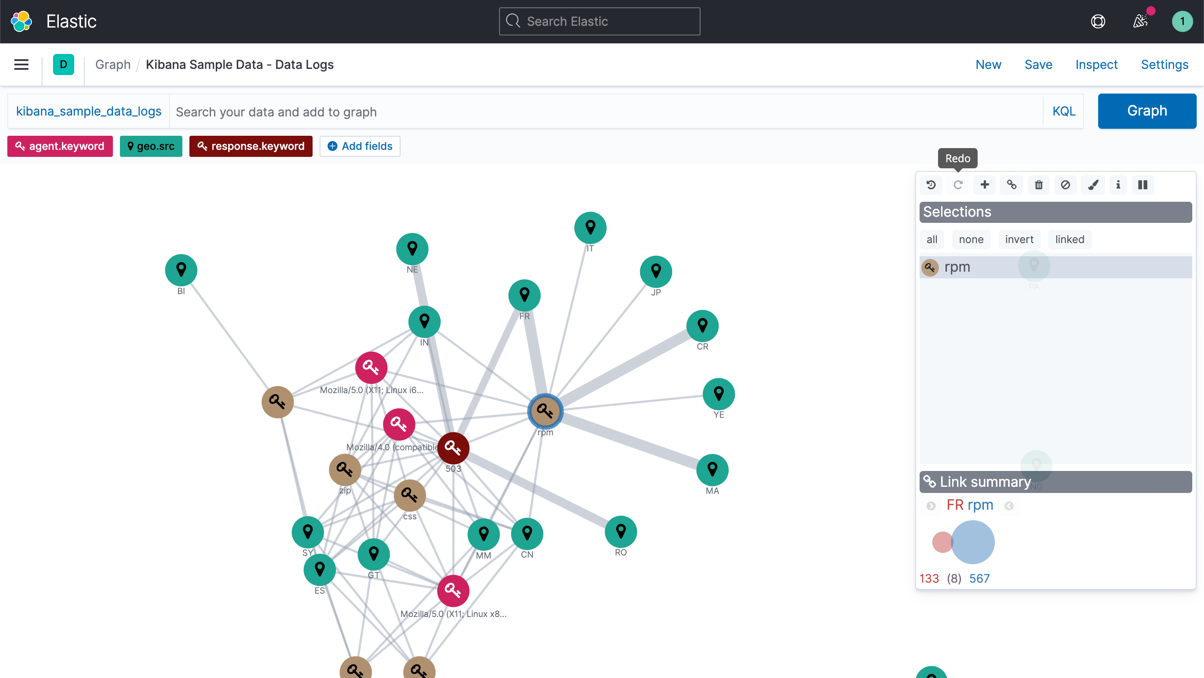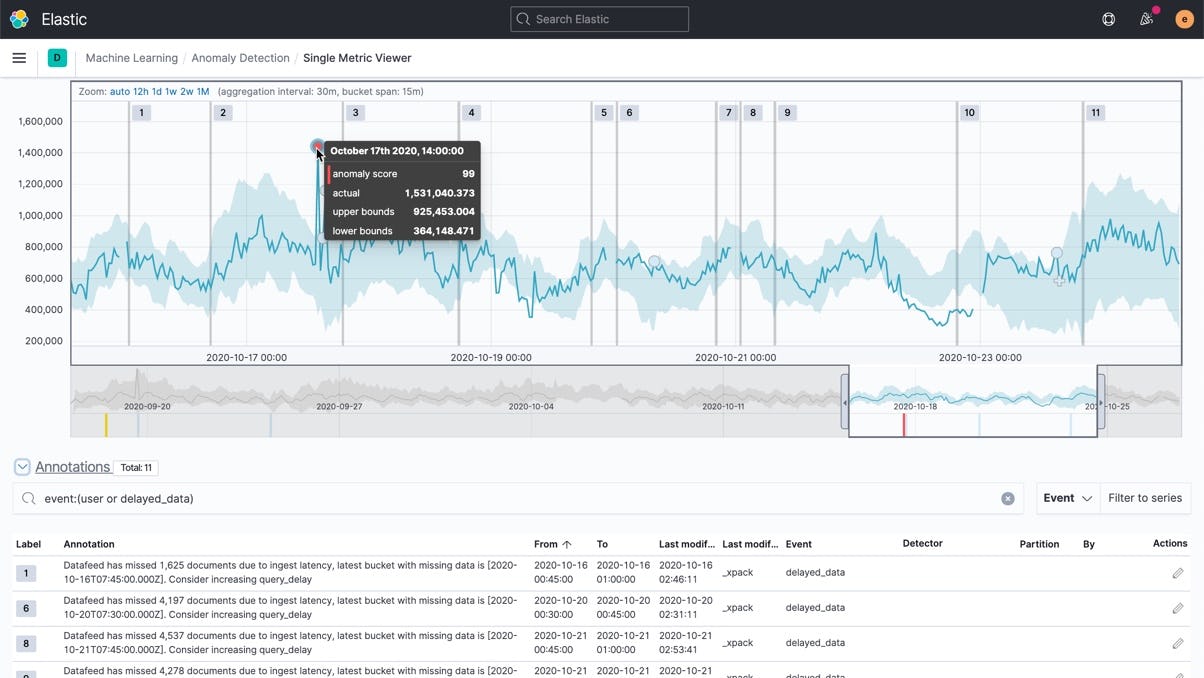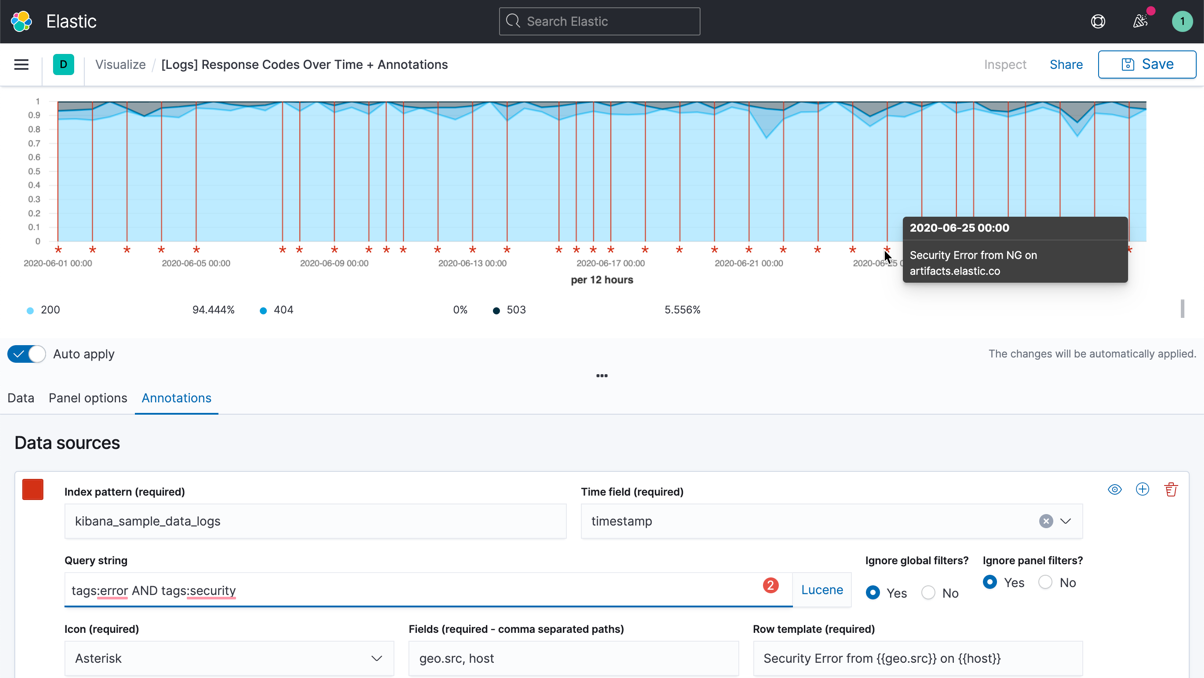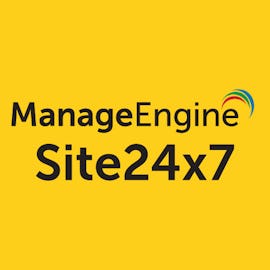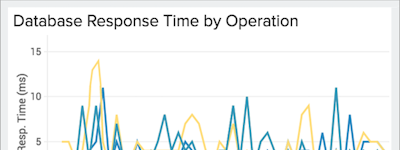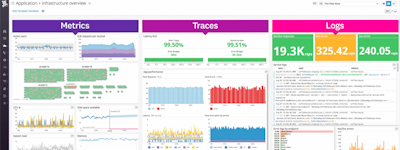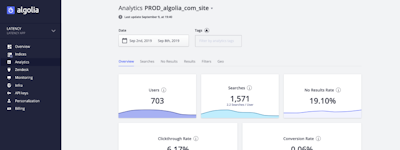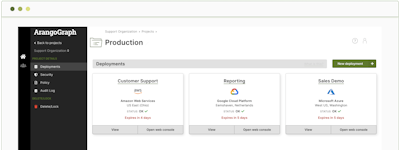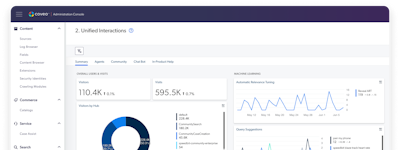17 years helping Australian businesses
choose better software
Elastic Stack
What Is Elastic Stack?
Built on a foundation of free and open, Elasticsearch, Logstash, Kibana, and Beats pave the way for diverse use cases that start with logging and span as far as your imagination takes you. Elastic features like machine learning, security, and reporting compound that value — and since they’re made for Elastic, you'll only find them from us.
Reliably and securely take data from any source, in any format, then search, analyze, and visualize it in real time.
Who Uses Elastic Stack?
Elastic is built for relevance at scale, easily able to support small businesses, the largest multinationals, and everything in between.
Not sure about Elastic Stack?
Compare with a popular alternative

Elastic Stack
Reviews of Elastic Stack

Elastic Cloud on Kubernetes for best scalability
Comments: Organizing chat data to be searchable and log management to proactively fix issues.
Pros:
One of the best features I like is that Elastic built their own kubernetes operator to extend the k8s orchestration and make it easy to deploy, scale, change, secure and configure hot-warm infrastructures. Their operator saves a ton of time during configuration. I have deployed stacks on different k8s architectures like Azure Kubernetes Service, Amazon Elastic Kubernetes Service and small on prem clusters with microk8s without issues. When we reach performance thresholds we add more elastic nodes and ECK secures and joins it to the cluster and in minutes we can leverage the extra compute. A lot of changes that are done after going to PROD are non-disruptive since ECK is aware of the main node and makes sure to pass the master role before the main one is re-deployed. I have also migrated Elastic Cloud Enterprise deployments running on bare metal and the stability of ECK is unmatched.
Cons:
Currently it is not recommended or supported for a PROD cluster to do its own self monitoring so you have to deploy a monitoring cluster. In cloud scenarios this adds costs and extra complexity so it will be great to have this feature supported.
A very good stack to store and visualize data.
Comments: Overall I am happy with my decision to choose Elastic Stack. It is completely fulfilling my requirements without any issues.Kibana works very well even with a lot of data.
Pros:
I mostly like the Elastic Search queries. Those follow a certain standard and work very well. Data retrieval is very easy and fast in Elastic Search.Visualizing data thru Kibana is very smooth and straightforward. It supports a couple of inbuilt dashboards to represent the data nicely.
Cons:
Nothing to dislike about Elastic Stack. The only thing is configuration and setup should be correct. It could take some time for beginners.
This powerful tool allows you to take data from any source and format to search and analyze.
Pros:
It is a super fast and efficient data extraction tool. Recommended for medium-sized projects. Handles large amounts of data, is scalable.
Cons:
Usable from any device, however these must be state-of-the-art and offer great calculation speeds and ram storage.
Elastic Stack - A Complete Package for Big Data Visualizations and Fast Data Query!
Comments: Elastic Stack is a powerful platform which allows you to quickly search and query on the data even if the data is in huge volume, thanks to its distributed computing and storage. it has enabled me to develop an application which fetches results from TBs of data in seconds.
Pros:
1.Allows Faster searching and query operations 2.Provides with easy data visualization for analysis 3.Support for multiple data sources 4.Good SDK support for quick integration with application 5.Scalable as per the requirement with support of kubernetes
Cons:
1.UI is simple ,could be made more robust and dynamic 2.Calculations and processing speed can be further improved 3.Proper usage knowledge is required when using it on scalable platforms
Infinitely scalable search solution
Comments: We use it to store and analyze in real time network traffic for our custom L4 firewall.
Pros:
Handles a ton of traffic without issues given enough hardware
Cons:
Hardware requirements might be too much for little deployments.
Easy to monitor logs
Pros:
Using elastic stack I can easily track my application logs.
Cons:
I liked almost all the features but there is still scope in the dashboard.
Data management and visualisation at (almost) its best
Pros:
I really like how multiple inputs can be managed at the same time.
Cons:
The multiple versions of API and multiple possible format make it quite hard to get the correct one - mostly when a new release is out and user is pushed to use it - without proper support.

Best for Website Monitoring, Event Management and Log Analysis.
Comments: This lightweight, yet powerful, modern SIEM is well-suited for the modern security operations center as it can handle a wide range of activities with ease. elastic Stack is a powerful and flexible SIEM with feature-rich out-of-the-box tools that make it easy to get the job.
Pros:
We are using ELK Stack SIEM, a scalable aggregation engine that helps us find patterns in our data as well as provides a wide array of customizable analytics and reports. With Elastic Stack, we have a better understanding of flaws and security issues, particularly memory tier support that ensures the security of our data and networks.
Cons:
It is very challenging and time-consuming to upgrade cluster node roles and data replication.

The perfect searching allied to a RDB
Comments: We've been pairing Elasticsearch with a traditional RDB in many projects with great results. This way we don't compromise our data reliability and searching speed is blazing fast.
Pros:
Searching is where elasticsearch is second to none, either in terms, n-grams or full-text. Latest releases have greatly improved the aggregation performance, so it's also a great fit for analytics workloads. The customizable sharding and replica configurations make is very reliable too.
Cons:
Searching and joining different documents has room for improvement, it's usualy not as fast as we would like it to be, so most of the times we end up un-normalizing documents and en-richening their data to boost searching performance.

One of the Best No sql Document Base Database
Comments: In our projects, we use elasticsearch in database queries that need fast answers. It is especially useful for search and autocomplete operations.
Pros:
When you want to run queries in big data and get results, you can get results much faster from relational databases. Queries are also easy to create
Cons:
We sometimes have problems during the integration of Kibana. But we couldn't figure out why Other than that, I didn't have any problems
A Very Useful Stack !!!
Comments: Overall I am very happy as a user of Elastic Stack. It completely fulfills my requirements. We can store and retrieve data very easily in Elastic. Kibana is a very good tool to visualize data saved in Elastic.
Pros:
Elastic search is very fast, it returns the results within a few milliseconds. We can connect Logstash and Kibana very easily with Elastic.The filters in Kibana are very good. We can sort the data as needed.
Cons:
I don't think there is anything to dislike about Elastic.
Reliable and easy to use tech stack
Comments: It's an easy choice when complex queries are involved, if cost is a secondary factor.
Pros:
Natural language processing like stemming, removing stopwords, multilingual search, tokenized storage etc.
Cons:
When there is a large text searches, the elastic search sometime crashes. This needs to be optimized.
Alternatives Considered:
Great log collection tool
Comments: We originally searched for a scalable, mid-tier log analysis tool for our multi-server application. Elastic was able to hook into our system and collect what we needed; though we did not get too far into the custom analytics as we would've liked to.
Pros:
Widely-supported, almost a pioneer software for logging. Even now, most logging tools actually leverage ELK under-the-hood for their analysis or collection.
Cons:
Pattern-matching needs to be more user-friendly, it would be best if they were able to leverage conventional regex usage instead of their custom format. Elastic RegExp queries must match the entire string and take a bit of learning, see here for syntax documentation: [SENSITIVE CONTENT]
My favorite BI & SIEM Tool
Comments: overall i am delighted to have chosen this application, it solved many of our problems
Pros:
Lightening fast, we built BI dashboards and the 5 years reports data gets populated within seconds that would otherwise takes hours traditionally database or BI tool
Cons:
Very Big learning curve, first tie deployment takes very long time to make it work perfectly and then optimize it. need very good technical expertise
Using Kibana
Pros:
We user Kibana's dashboard and also part of it for data analysis of our tool. It allows us to look and compare historical data and gives us a great visualisation, analytic tools and data sharing options of all the data collected by our scanner.
Cons:
I enjoy working with the tool, however, I am missing quite some UX design improvements that could really improve the interaction with Kibana. Moreover, I could use an option of saving the templates or most recent types of searches into some kind of database so we would not need to setup these all over again.
One of the best , simple log analytics and searching tool.
Comments: Best for searching, log analytics, and visualization software available in the market. The integration of Elastic Search, Logstash, and Kibana makes it one of the best overall software to manage and visualize and analyze logs.
Pros:
It is very easy to deploy using docker containers and Kubernetes support. It's very easy to query a high volume of data and get results in seconds. Its easy-to-use UI is self-explanatory and also the forum support and documentation are quite helpful.
Cons:
Sometimes it crashes in between. Query structure is somewhat completed, and can be made simple with more specific examples to use directly in projects.
Elastic Stack is the best for Business
Comments: we use elastic stack to integrated with elastiflow to track all the traffic destination, protocol log, and other activity inside network, it very nice and work well, and produce the nice dashboard and clear view.
Pros:
the very powerful search engine I search around 5 million log in a second only. Very nice real-time dashboard, I can integrated with other software and see all the view of network traffic, traffic flow very well.
Cons:
well I would say, it's pretty good already, but still some function need to use command alot.
Distributed Search and analytics engine available in cloud
Comments: Best search and analytics software available in cloud, flexible to use and available free trial to evaluate it.
Pros:
This is best search software for data searching and analytics on stream data in cloud. It is so flexible complex keyword searches and very efficient. Great tool for analyzing logs very powerful. 24/7 customer support.
Cons:
Not really a negative side but if you have low bandwidth web interface will become very slow.And think learning manual still needs some improvement.
A complete stack for full text search
Comments: Elasticsearch might be overkill if you are working with a small or mid-sized applications. However it's a serious solution for big-scale apps that are dealing with millions of records. The setup of the Elasticsearch might seem easy, but the maintenance is not. If you have simpler needs, I would suggest the full-text search functionality of modern PostgreSQL versions.
Pros:
Elasticsearch is quite powerful and fast. You can implement it to any enterprise software independent of the scale. It's well documented and getting frequent updates. It's also a reliable software that you can use in mission-critical operations.
Cons:
Breaking changes between different versions are hard to deal with. Each major version upgrade of ElasticSearch is bringing new functionality, improved security, and speed - but at the same time, it requires you to update your indexes, which is not an easy task if you don't have a strong infrastructure team.
Powerful stack for event collection, management and visualisation
Comments: A solid product with a rich feature set, if you get past the initial setup complexity.
Pros:
Provides great features for log ingestion, normalisation and visualisation. Has a free open source tier which can be used to cover many use cases. Visualisation options are diverse and powerful. Solid community support in forums.
Cons:
Initial setup can be tedious and is rather complex. The provided security ruleset tends to produce many false positives and requires fine tuning. Log ingestion options are not entirely covered by the web user interface.
Elastic Stack for Application Logs
Comments: Elastic Stack is an open source full stack solution for logs of modern day big data applications processing logs with its different applications of Logstash, Elastic and Kibana. We are using it to read through application logs, storing logs data and using dashboard to easily navigate thru the big chunk of files. Its an amazing combo of applications, completely free of cost with easy implementation and powerful online support.
Pros:
1. End to End Solution of enterprise logs with services such as Logstash, Elastic and Kibana. 2. Strong User Community and support. 3. Easy to use and implement. 4. Proactive updates on possible downtimes. 5. Dashboards for easy navigation.
Cons:
1. Cloud performance is slower than on premises installation. 2. It crashes in between which delay things sometimes.
Elasticsearch is a general purpose search engine that can do much more than search
Comments: We use Elasticsearch to filter and sort search results in our marketplace. We've built out many complicated queries that allow us to do interesting things like geo-based queries, personalization, and time boxed deals.
Pros:
Elasticsearch offers a very flexible system for adding search capability to your systems. It is also capable of much more. The REST API and great documentation makes getting started very simple. Elasticsearch was also designed with scaling in mind. Adding nodes and self balancing is quite easy. AWS offers hosted Elasticsearch that makes spinning up your first cluster as simple as a few clicks.
Cons:
Writing complicated queries can be quite tedious at times. The JSON interface is not always easy to read when trying to match up parentheses. Upgrading from older versions is not a simple process.
ElasticSearch_02-07-2022
Comments: I use it log search.
Pros:
It is good to store and monitor logs with Kibana.
Cons:
The elasticsearch version management is bad because next version could have critical changes from previous.

Have too much data to your database?
Comments: Our application makes many filters for too much data, without Elasticsearch it just stops
Pros:
- Almost 100% of uptime - Great support - Really fast and easy to use for any application - Easy to configure
Cons:
- The cost of product may inviabilize it's use for small applications or companies - If the configuration goes wrong it may really affect the speed
Working On Big Data Is Now More Comfortable
Comments: Our company uses elasticsearch to analyze data in very large data. Successful indexing is designed in a cluster (node) structure, which has made our work much easier. Thanks to this search engine, we can reach the desired analysis results in the data. It is a blessing for our sector employees to have a free application running in this performance.
Pros:
Flexibility and high performance are the most loved features for us. The fact that we are not using it very effectively is also a ramen of suggestions and guidance.
Cons:
The only feature I don't like is that it is Java based.

